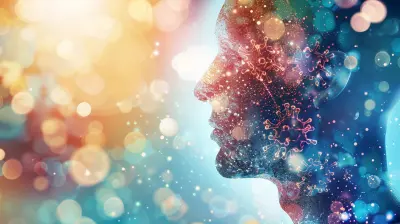How Artificial Light Affects Your Hormones: A Look at Blue Light Exposure
29 June 2025
Ever wonder why you’re lying wide-awake at 2 AM even though you’re dead tired? Or why your mood takes a nosedive after hours of scrolling on your phone? Well, a big part of the answer might be lurking in your screen—literally. Let's talk about artificial light and its sneaky sidekick, blue light, and how they mess with something super important: your hormones.
In this post, we're digging deep (but keeping it chill) into how artificial light—especially blue light—throws your hormones off balance and messes with things like sleep, mood, productivity, and even your metabolism. No boring science lectures here—just real talk, backed by solid info, and laid out in a way that actually makes sense.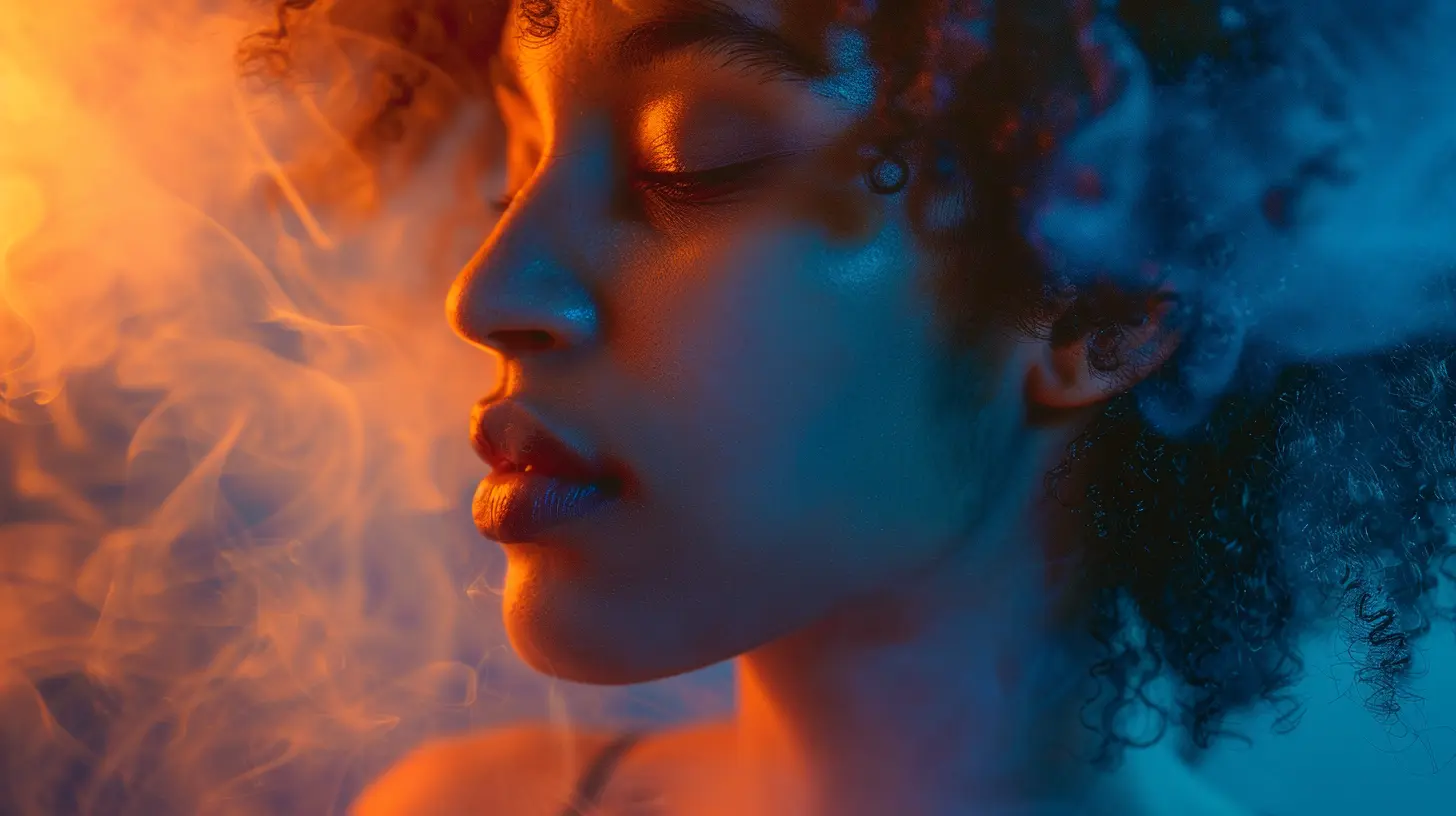
What Is Artificial Light, Anyway?
Okay, let’s start with the basics. Artificial light is any light that’s not from the sun. We’re talking about the stuff beaming from your LED bulbs, TV, laptop, tablet, and yep, your phone screen.Now, not all artificial light is created equal, but one kind stands out (for the wrong reasons): blue light.
So, What’s Blue Light?
Blue light is a high-energy visible (HEV) light that’s everywhere. The sun gives off blue light too, but the real issue is the artificial blue light that comes from digital screens and modern lighting. It has a shorter wavelength, which means it packs more energy—and can potentially do more damage.And no, it’s not actually blue. But your brain? Oh, it totally sees it.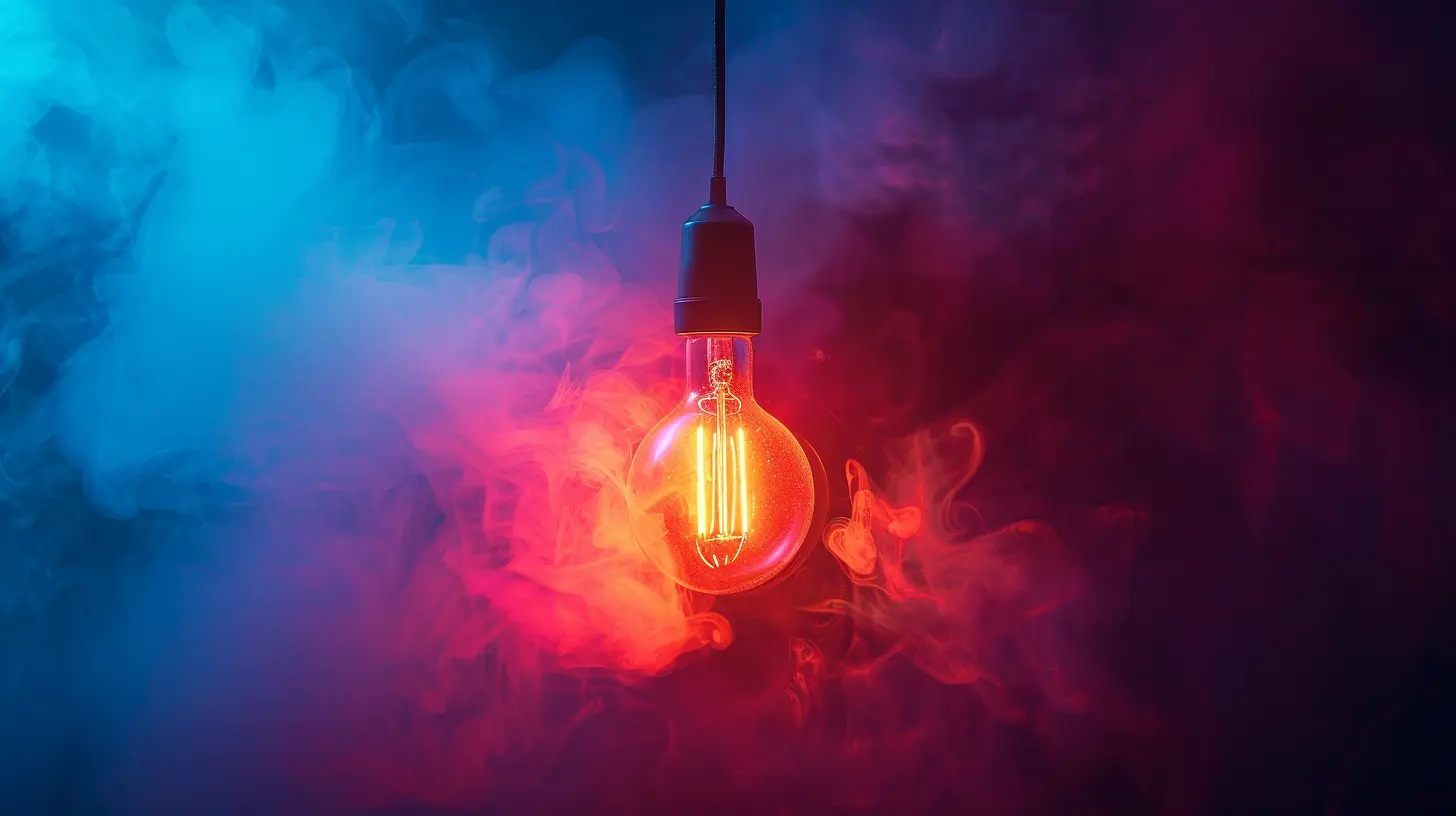
Meet Your Hormones – The Body’s Messaging System
Hormones are like text messages your body sends to keep everything running smoothly. They control everything from appetite to sleep, mood to metabolism. The big players we’re focusing on today are:- Melatonin – Your sleep hormone
- Cortisol – The stress hormone
- Serotonin – Your mood stabilizer
- Leptin and Ghrelin – The appetite duo
When your body’s in tune with natural light and dark cycles, these hormones behave like pros. But when artificial light barges in, it’s like texting your body in all caps and throwing off its rhythm.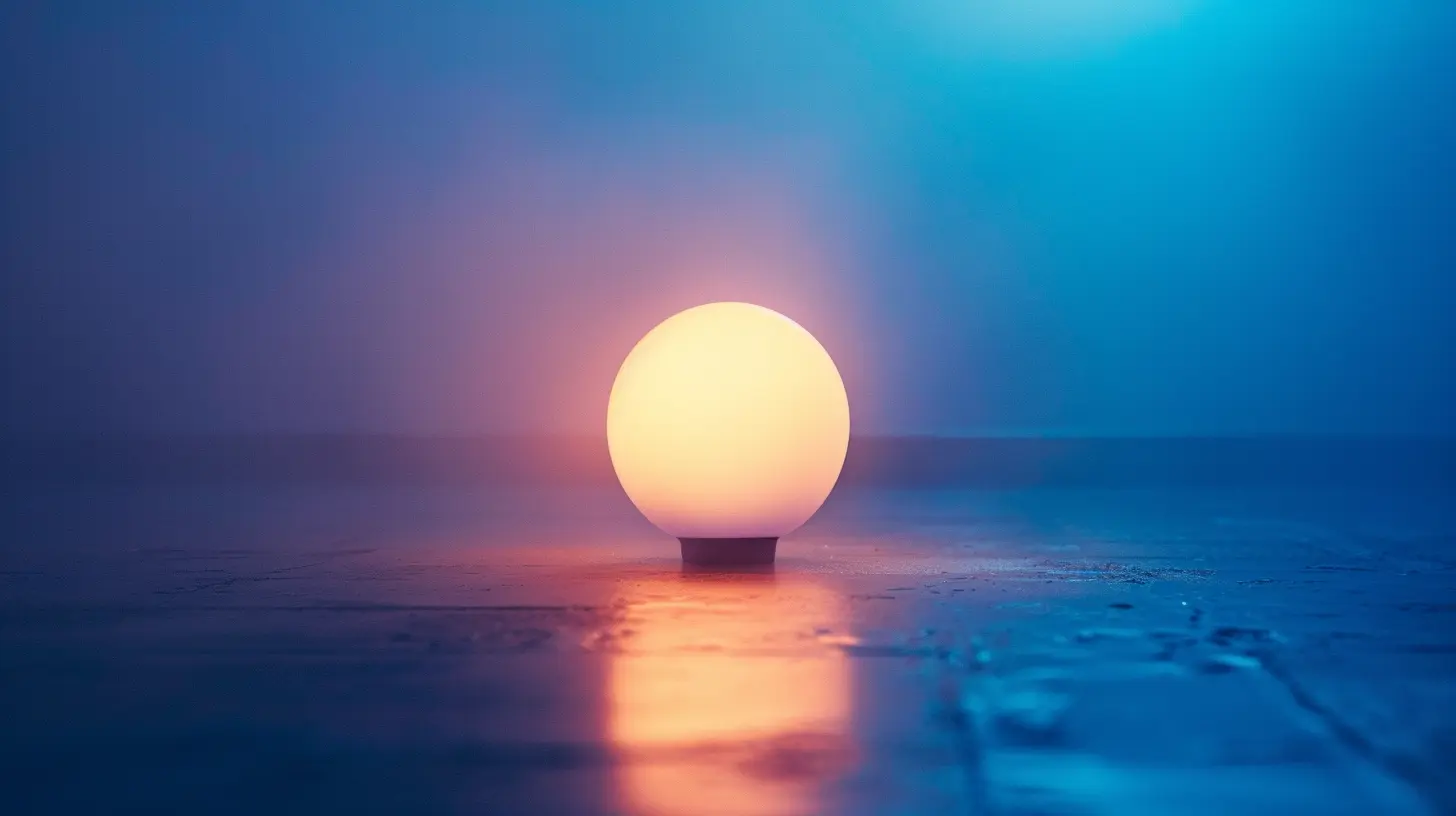
Artificial Light vs. Your Circadian Rhythm
Remember how you feel groggy on Monday after a weekend of binge-watching? That’s your circadian rhythm acting out.What’s Your Circadian Rhythm?
Think of it as your body’s internal clock. It runs on a 24-hour schedule and is heavily influenced by light and darkness. When it starts getting dark, your body gets the signal: “Hey, it’s bedtime soon.” Your brain releases melatonin and starts winding down.But what happens when it’s 10 PM, and you’re glued to a bright screen?
Ding ding ding... you guessed it: your brain thinks it’s still daytime.
Blue Light Delays Melatonin Production
Here’s the kicker: blue light suppresses melatonin production more than any other type of light. That’s a big deal because melatonin is what helps you fall asleep and stay asleep. Delay that release, and your whole sleep cycle gets thrown off.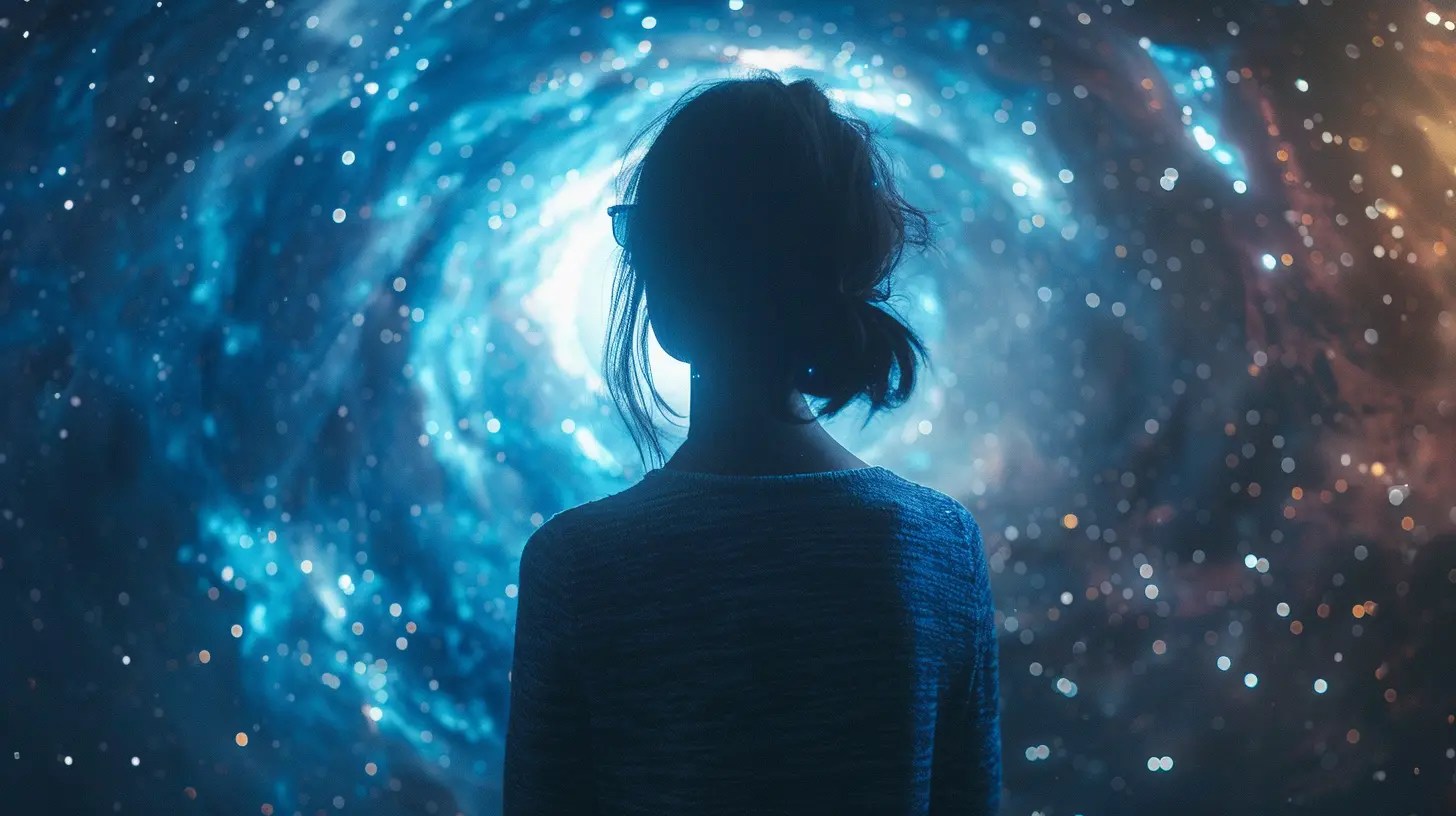
The Domino Effect: How Blue Light Disrupts Hormones
Your body is all about balance. Throw one hormone off, and the others get dragged along for the ride. Let’s look at the ripple effects.1. Sleep Goes Out the Window
Less melatonin = poor sleep quality.You might find it harder to fall asleep, toss and turn all night, or wake up feeling like you fought a bear in your dreams. Chronic poor sleep messes with everything from mood to immune function.
2. Cortisol Stays High When It Shouldn’t
Normally, cortisol peaks in the morning to help you wake up, then drops throughout the day. But exposure to blue light at night can cause cortisol to stay elevated longer, keeping you wired when you should be winding down.More cortisol = more stress = lousy sleep + increased belly fat + a grumpy mood. Not fun.
3. Mood Takes a Hit
Disrupted melatonin and serotonin levels can leave you feeling moody, anxious, or even depressed. Ever get that irritable, low-energy feeling after hours of screen time? Yeah, thank blue light.4. Appetite Hormones Go Haywire
Can’t stop snacking at night? It’s not just willpower—hormones are involved.Blue light exposure, especially in the evening, can affect ghrelin (the "I’m hungry" hormone) and leptin (the "I’m full" hormone). This hormonal imbalance can trick your brain into thinking you’re hungry when you’re really not, leading to late-night munchies and weight gain.
Blue Light and Your Eyes: A Hormonal Connection
Your eyes aren’t just for seeing—they’re also signaling devices for your hormones. Special cells in your eyes detect light and send messages to the brain’s pineal gland, which regulates melatonin.Too much blue light exposure can not only strain your eyes (hello, eye fatigue and headaches) but also send the wrong hormonal signals at the wrong time.
Why Kids and Teens Are Even More Vulnerable
If you’ve got kids or teens glued to screens, listen up. Their eyes haven’t fully developed the natural filtering that adults have. That means they absorb even more blue light, and their hormones are more easily thrown off.The result? Poor sleep, crankiness, trouble focusing, and even early changes in puberty-linked hormones. Yep, it’s that serious.
Night Owls and Shift Workers: You’re at Higher Risk
Working night shifts or living a night owl lifestyle? You’re already fighting against your natural circadian rhythm. Add in artificial light, and you're basically kicking your hormones while they’re down.Studies show that night shift workers have higher risks of obesity, diabetes, and even certain types of cancer, partly because their hormonal rhythms are all out of sync.
Simple Tips to Protect Your Hormones From Blue Light
Okay, enough gloom and doom. The good news? You can protect yourself—and your hormones—without going off the grid.Let’s keep it super practical.
1. Dim the Lights at Night
Switch to warmer, dim lighting in the evening. Those soft yellow or red-hue bulbs are way gentler on your hormones than bright white LEDs.2. Use Blue Light Filters
Your phone and laptop most likely have built-in night modes (like Night Shift or Night Light). Turn them on! Or install a blue light filtering app like f.lux.3. Try Blue Light Glasses
They might look a little nerdy, but they work. Blue light blocking glasses filter out the harmful wavelengths and help your brain keep its rhythm.4. Go Screen-Free Before Bed
Aim for at least 60 minutes of screen-free time before bed. Read a physical book, stretch, journal—whatever helps you wind down. Your pineal gland will thank you.5. Get More Natural Light During the Day
Your body needs contrast. The more natural daylight you get in the morning and afternoon, the better your body can differentiate day from night. Go for a walk, open the blinds, sit by a window—anything helps.6. Stick to a Regular Sleep Schedule
Try going to bed and waking up at the same time every day—even on weekends. Consistency is key to keeping those hormones in check.Can You Reverse the Effects?
Yes! Hormonal imbalances from artificial light aren’t set in stone. Once you start being more mindful of your light exposure, your body can gradually reset its rhythms. Think of it like helping your body find its groove again.It might take a few days to a couple of weeks, but with consistency, you’ll start noticing better sleep, improved mood, and fewer cravings. That’s your hormone system saying, “Finally, we can breathe!”
Final Thoughts
Artificial light, especially blue light, is pretty much impossible to avoid completely. It’s woven into how we live, work, and even relax. But that doesn’t mean we’re powerless.By understanding the link between light and hormones—and making a few smart changes—you can take back control of your sleep, mood, and overall health. Think of it as syncing back up with your body’s natural playlist after months of listening to static.
So next time you’re about to scroll Instagram at midnight, maybe reach for a book instead. Your hormones will totally high-five you.
all images in this post were generated using AI tools
Category:
Hormonal BalanceAuthor:

Jackson Mahoney
Discussion
rate this article
1 comments
Briar Montgomery
Embrace natural light for hormonal balance!
July 13, 2025 at 4:53 AM

Jackson Mahoney
Thank you! Embracing natural light can indeed help regulate hormones and counteract the negative effects of artificial blue light.


